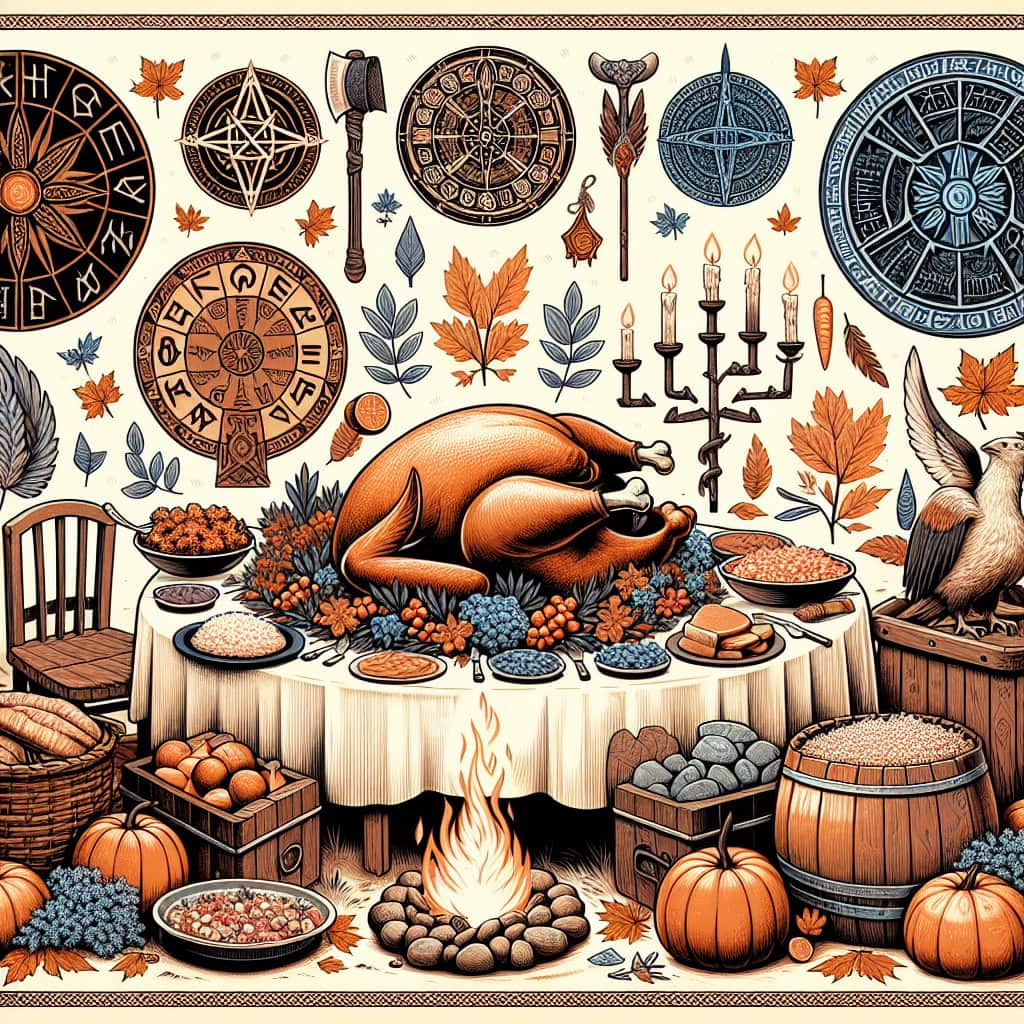Thanksgiving is a holiday that is celebrated in many countries around the world, but is it rooted in pagan customs? This article will explore the history of Thanksgiving and examine whether or not it has pagan origins. We will look into the roots of the holiday and evaluate the evidence to determine if Thanksgiving is indeed a pagan holiday or if it is something entirely different. We will also discuss the various ways that Thanksgiving is celebrated and how the holiday has changed over time. In the end, we will come to a conclusion about the true nature of Thanksgiving and its place in our modern culture.
Thanksgiving is a holiday celebrated in the United States and Canada on the fourth Thursday of November. It is traditionally a time for family gatherings, feasting, and giving thanks. But is Thanksgiving really a pagan holiday?
What is the origin of Thanksgiving?
The origins of Thanksgiving can be traced back to the 1621 celebration at the Plymouth Plantation, where the Plymouth colonists and Wampanoag Indians shared an autumn harvest feast that is acknowledged today as one of the first Thanksgiving celebrations in the colonies. While this event is often cited as the first Thanksgiving celebration in North America, it is likely that similar celebrations took place long before the 1621 feast.
What are the Pagan Origins of Thanksgiving?
Some people believe that there are pagan origins behind the Thanksgiving celebration. The most popular theory is that the holiday is based on ancient pagan harvest festivals. These festivals, which were celebrated in many cultures, honored the gods and goddesses of fertility and the harvest.
It is true that many ancient cultures celebrated harvest festivals, but there is no evidence that these festivals were the basis for the American Thanksgiving celebration. In fact, the origins of the modern American Thanksgiving are more closely linked to the Christian harvest festivals of Europe than to any pagan celebration.
Is Thanksgiving a Pagan Holiday?
No, Thanksgiving is not a pagan holiday. While the holiday may have its origins in ancient harvest festivals, it is now a secular holiday that is celebrated by people of all faiths. The holiday is a time to come together, give thanks, and celebrate the blessings of the season.
What is the Significance of Thanksgiving?
The significance of Thanksgiving is to give thanks for the blessings of the season. It is a time to reflect on the blessings of the year and to express gratitude to those who have helped us throughout the year. It is also a time to come together with family and friends to celebrate and remember the things we are thankful for.
What Do People Do on Thanksgiving?
On Thanksgiving, people typically gather together with family and friends to enjoy a meal and give thanks for the blessings of the year. In the United States, the traditional Thanksgiving meal typically includes turkey, stuffing, potatoes, vegetables, cranberry sauce, and pumpkin pie. Other activities might include watching football, playing board games, or going for a walk.
Conclusion
Thanksgiving is a holiday celebrated in the United States and Canada on the fourth Thursday of November. It is a secular holiday that is celebrated by people of all faiths and is a time to come together, give thanks, and celebrate the blessings of the season. The holiday is not a pagan holiday and does not have any pagan origins. On Thanksgiving, people typically gather together with family and friends to enjoy a meal and give thanks for the blessings of the year.
In conclusion, Thanksgiving is a holiday that has been celebrated in various forms for centuries. While its origins may be rooted in pagan traditions, it has since evolved into a day of gratitude and appreciation for all that we have. The celebration of Thanksgiving has become a time for families and friends to come together, share a meal, and give thanks for the blessings in their lives. No matter what its origin, Thanksgiving is an important holiday that should be celebrated with joy and gratitude. It is a reminder to be thankful for the good in our lives and to take the time to appreciate the people and things we have.





